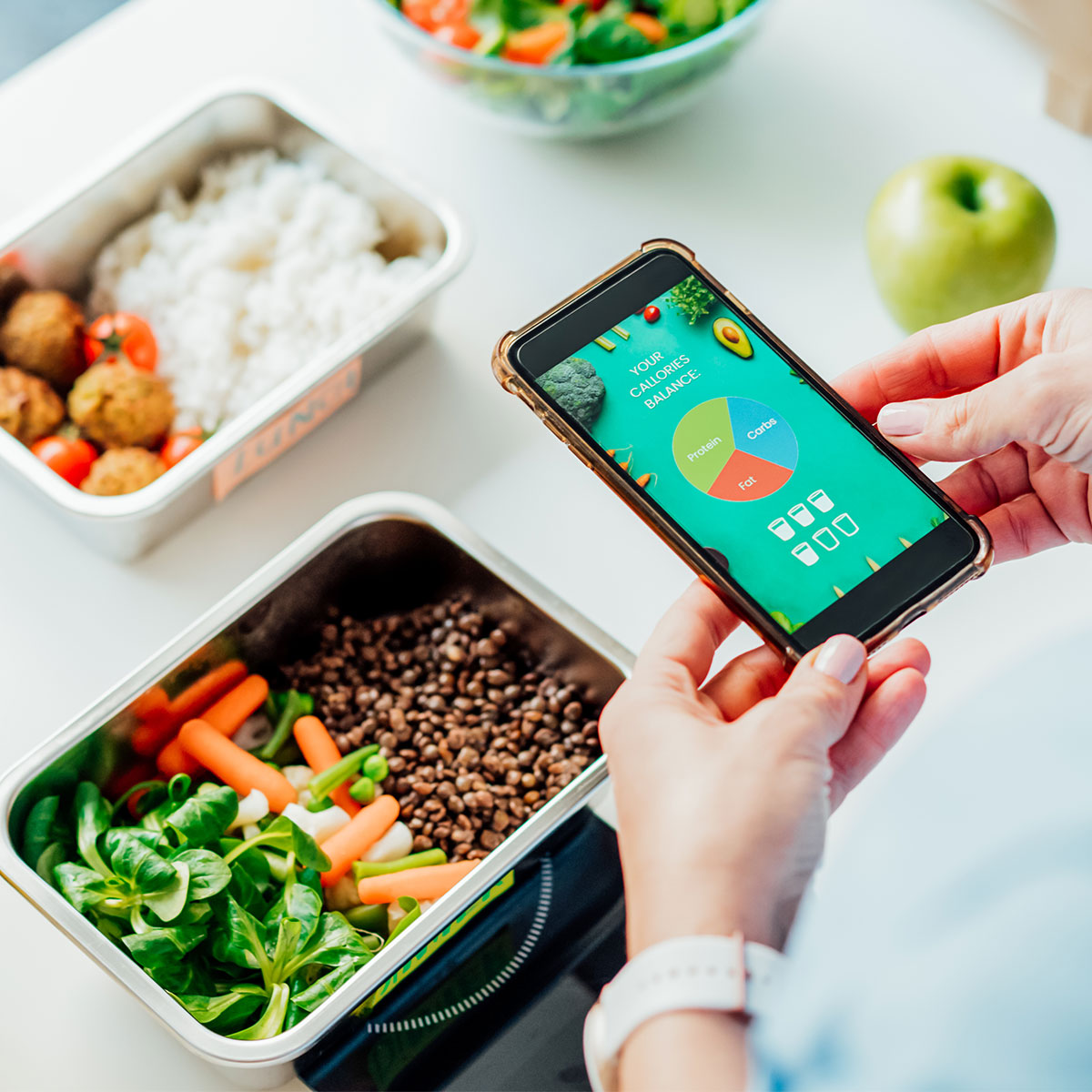
1. Create A Realistic Meal Plan For Yourself
One way to prevent spontaneous snacking, Richards explains, is to have a balanced meal plan for yourself, and stick to it. For many, a visual aid is useful on their weight loss journey, as is tracking what they have eaten and knowing what helps you feel better and more energized (and what doesn't!) However, she emphasizes that extreme cutting of calories or monitoring food is never ideal, just to help yourself become more aware of what foods lead you to feel best.
"Sustainable weight loss methods will typically result in a 1 to 2 pound loss per week," she says, noting, "this may not sound like much initially, but overtime, even just 21 days, this adds up. It is important to focus on sustainable weight loss methods because extreme methods that may be effective initially will ultimately result in rebound weight gain, she points out.
"Some of the best approaches to weight loss do not require significant calorie restriction, long exercise periods, or cutting out major food groups or macronutrients," she continues. By writing and keeping a food journal, you can also have a better idea of what you need more of nutrient wise, and can easily show this to a doctor, nutritionist or other health expert if you need help planning.
2. Pay Attention To Your Hunger Cues
Intuitive eating, Richards says, centers around knowing your hunger cues and when you are *truly* hungry/ starving. Oftentimes, for example, you might find that instead of needing a snack, you're in fact thirsty, and a glass of water will do the trick.
"Intuitive eating is one approach that allows the dieter to get in touch with their true hunger and fullness," she says. This method, Richards notes, results in weight loss by causing the individual to eat when they are truly hungry and stop when they are full. "This results in sustainable weight loss as they begin to trust and understand their own body's needs," (and you'll find yourself excessively snacking late at night less and less).
3. Skip Salty Foods & Dairy Late At Night
If you must eat late at night, Richards stresses avoiding anything high in salt or dairy products. "Nighttime snacking is not uncommon and does not hhave to lead to weight gain or bloat," she says, adding, "Unfortunately, there are some common pre-bedtime snacking mistakes that can lead to bloat the next morning. Richards notes that light, filling snacks like veggies and hummus for example, are a better choice.
"Sodium causes water retention which leads to bloat," she says, and "eating high salt foods at night, even those that are seemingly healthy, can cause excess weight the next day due to bloat. As for dairy, these products are "inflammatory, leading to gastrointestinal discomfort, including bloat," she says. "Your nighttime bowl of ice cream or cereal may be causing your morning bloat, " she points out. "Eating fruit high in fructose before bed could also cause bloat the next day," Richards concludes. Noted!


